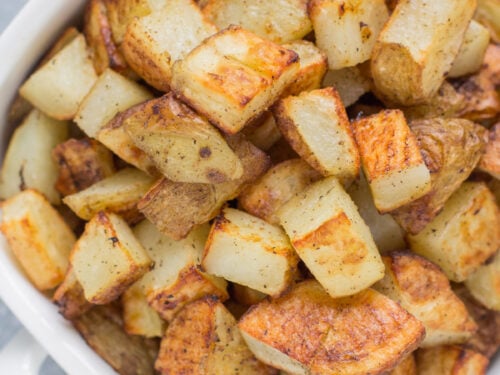When it comes to cooking meat with vinegar, marinating and sautéing are two popular methods that can enhance the flavor and tenderness of the meat. Marinating involves soaking the meat in a mixture of vinegar, oil, and spices, allowing it to absorb the flavors. On the other hand, sautéing involves cooking the meat in a hot pan with a small amount of vinegar, creating a delicious caramelized crust. Both methods can be used for various types of meat, including beef, chicken, pork, and even fish.
Benefits of Using Vinegar in Meat Cooking
Vinegar offers several benefits when used in meat cooking. Firstly, it acts as a tenderizer by breaking down the proteins in the meat, resulting in a more tender and juicy texture. Additionally, vinegar can add a tangy and acidic flavor to the meat, enhancing its overall taste. It also helps to remove any unwanted odors that can sometimes be present in certain meats. Furthermore, vinegar can help to reduce the cooking time, making it a time-saving option for busy home cooks.
Types of Vinegar for Cooking Meat
There are several types of vinegar that can be used for cooking meat. Apple cider vinegar, with its slightly sweet and fruity flavor, is a popular choice for marinades and sauces. Red wine vinegar, on the other hand, adds a rich and tangy taste to meats, making it ideal for roasts and stews. Balsamic vinegar, known for its dark and syrupy consistency, adds a touch of sweetness and depth to grilled meats. Each type of vinegar offers unique flavors that can complement different types of meat.
Tips for Marinating Meat with Vinegar
To achieve the best results when marinating meat with vinegar, there are a few tips to keep in mind. Firstly, always use a non-reactive container, such as glass or stainless steel, when marinating meat with vinegar to avoid any unwanted metallic flavors. The duration of marinating varies depending on the type and size of the meat, but generally, 30 minutes to overnight can be sufficient. Experimenting with different combinations of vinegar, oil, herbs, and spices can create unique flavor profiles for your meat dishes.
Sautéing Meat with Vinegar: Step-by-Step Guide
Sautéing meat with vinegar can result in a delicious caramelized crust and flavorful dish. Here is a step-by-step guide to help you sauté meat with vinegar:
Key Takeaways:
- Marinating and sautéing are two popular methods for cooking meat with vinegar.
- Vinegar acts as a tenderizer and adds flavor to meat dishes.
- Different types of vinegar, such as apple cider vinegar, red wine vinegar, and balsamic vinegar, offer unique flavors for cooking meat.
- When marinating meat with vinegar, use a non-reactive container and experiment with different flavor combinations.
- Sautéing meat with vinegar can create a delicious caramelized crust and enhance the overall flavor of the dish.
Benefits of Using Vinegar in Meat Cooking
Vinegar offers several benefits when used in meat cooking. Firstly, it acts as a tenderizer by breaking down the proteins in the meat, resulting in a more tender and juicy texture. Additionally, vinegar can add a tangy and acidic flavor to the meat, enhancing its overall taste. It also helps to remove any unwanted odors that can sometimes be present in certain meats. Furthermore, vinegar can help to reduce the cooking time, making it a time-saving option for busy home cooks.
When vinegar is used as a tenderizer, it helps to break down the tough fibers in the meat, making it easier to chew and digest. This is especially beneficial for tougher cuts of meat, such as beef brisket or pork shoulder. The acidity in vinegar helps to soften the muscle fibers, resulting in a more tender and succulent end product.
In addition to tenderizing the meat, vinegar also adds depth and complexity to the flavor profile. The tangy and acidic nature of vinegar can cut through the richness of the meat, balancing out the flavors. It can complement both savory and sweet dishes, making it a versatile ingredient in meat cooking.
| Benefits of Using Vinegar in Meat Cooking |
|---|
| Tenderizes the meat |
| Adds tangy and acidic flavor |
| Removes unwanted odors |
| Reduces cooking time |
Furthermore, using vinegar in meat cooking can help to remove any unwanted odors that may be present in certain meats. Some meats, such as lamb or game, can have a stronger aroma that some people find off-putting. However, the acidity in vinegar can help to neutralize and eliminate these odors, resulting in a more pleasant dining experience.
Lastly, vinegar can be a time-saving option for busy home cooks. By using vinegar in your meat cooking, you can help to reduce the cooking time. The acidity in vinegar helps to break down the meat fibers more quickly, allowing for faster cooking. This can be especially beneficial when you’re short on time but still want to enjoy a flavorful and tender meat dish.
Types of Vinegar for Cooking Meat
When it comes to cooking meat with vinegar, choosing the right type of vinegar can significantly impact the flavor profile of your dish. Here are three types of vinegar that work particularly well with meat:
1. Apple Cider Vinegar
Apple cider vinegar is a versatile option that adds a slightly sweet and fruity flavor to your meat dishes. It pairs well with a variety of meats, including chicken, pork, and even fish. Whether you’re marinating or sautéing, apple cider vinegar can enhance the overall taste and tenderness of your meat.
2. Red Wine Vinegar
Red wine vinegar brings a rich and tangy taste to your meat dishes, making it an excellent choice for roasts and stews. Its robust flavor complements hearty meats like beef and lamb, adding depth and complexity to your recipes. When using red wine vinegar, you can expect a flavorful and succulent outcome.
3. Balsamic Vinegar
Balsamic vinegar is known for its dark, syrupy consistency and distinct flavor. When used in cooking meat, it brings a touch of sweetness and depth to grilled or roasted meats. Balsamic vinegar pairs particularly well with beef and pork, creating a delightful balance of flavors that will impress your taste buds.
Experimenting with different types of vinegar can open up a world of possibilities in your meat dishes. Each vinegar offers unique flavors that can complement different types of meat, so don’t be afraid to explore and discover your favorites.
| Vinegar | Flavor Profile | Ideal Meat Pairings |
|---|---|---|
| Apple Cider Vinegar | Slightly sweet and fruity | Chicken, pork, fish |
| Red Wine Vinegar | Rich and tangy | Beef, lamb |
| Balsamic Vinegar | Sweet and deep | Beef, pork |
Tips for Marinating Meat with Vinegar
Marinating meat with vinegar can be a fantastic way to infuse it with flavor and tenderness. To ensure you get the best results, here are some helpful tips to keep in mind:
- Use a non-reactive container: When marinating meat with vinegar, it’s important to use a non-reactive container such as glass or stainless steel. This helps prevent any unwanted metallic flavors from leaching into the marinade.
- Consider marinade times: The duration of marinating can vary depending on the type and size of the meat. As a general guideline, marinating for at least 30 minutes to overnight can be sufficient. However, be cautious with delicate meats like fish or seafood, as they can become mushy if marinated for too long.
- Experiment with flavor combinations: One of the joys of marinating meat with vinegar is the opportunity to create unique flavor profiles. Feel free to experiment with different combinations of vinegar, oil, herbs, and spices to find the perfect balance of flavors that suits your taste preferences.
By following these tips, you’ll be well on your way to creating delicious and flavorful marinated meats that will impress your family and friends.
| Tip | Description |
|---|---|
| Use a non-reactive container | Opt for glass or stainless steel containers to avoid unwanted metallic flavors. |
| Consider marinade times | Vary the marinating duration based on the type and size of the meat, generally 30 minutes to overnight. |
| Experiment with flavor combinations | Play around with different vinegars, oils, herbs, and spices to create unique and tasty marinades. |
Sautéing Meat with Vinegar: Step-by-Step Guide
Sautéing meat with vinegar can elevate your dish with a delectable caramelized crust and rich flavors. Follow this step-by-step guide to master the art of sautéing meat with vinegar:
Step 1: Prepare the Meat
Start by selecting your preferred type of meat, such as beef, chicken, or pork. Ensure that the meat is trimmed and cut into thin, even slices for even cooking. Season the meat with salt and pepper to taste.
Step 2: Preheat the Pan
Place a large skillet or frying pan on medium-high heat and allow it to preheat. Add a small amount of oil, such as olive oil, and let it heat up for a minute or two.
Step 3: Sauté the Meat
Add the seasoned meat slices to the hot pan in a single layer, allowing space between each piece for even cooking. Cook the meat for a few minutes on each side until it develops a golden-brown caramelized crust.
Step 4: Deglaze with Vinegar
Once the meat is cooked to your desired level of doneness, remove it from the pan and set it aside. Add a splash of vinegar, such as red wine vinegar or balsamic vinegar, to the hot pan. Use a spatula to scrape up any browned bits or fond from the bottom of the pan, incorporating them into the sauce.
Allow the vinegar to reduce slightly, intensifying its flavor. Then, return the cooked meat to the pan and toss it in the flavorful vinegar sauce, ensuring it is evenly coated.
Your sautéed meat with vinegar is now ready to be served. The caramelized crust and tangy flavor will delight your taste buds, making it a standout dish. Enjoy!
FAQ
Q: What are some popular methods for cooking meat with vinegar?
A: Marinating and sautéing are two popular methods for cooking meat with vinegar. Marinating involves soaking the meat in a mixture of vinegar, oil, and spices, while sautéing involves cooking the meat in a hot pan with a small amount of vinegar.
Q: What benefits does vinegar offer when used in meat cooking?
A: Vinegar acts as a tenderizer by breaking down the proteins in the meat, resulting in a more tender and juicy texture. It also adds a tangy and acidic flavor to the meat, enhances its overall taste, and helps to remove any unwanted odors. Additionally, vinegar can help reduce cooking time, making it a time-saving option for busy home cooks.
Q: What types of vinegar can be used for cooking meat?
A: There are several types of vinegar that can be used for cooking meat. Apple cider vinegar is a popular choice for marinades and sauces, red wine vinegar adds a rich and tangy taste to meats, and balsamic vinegar adds sweetness and depth to grilled meats.
Q: What tips should I keep in mind when marinating meat with vinegar?
A: When marinating meat with vinegar, it is important to use a non-reactive container, such as glass or stainless steel, to avoid any unwanted metallic flavors. The duration of marinating varies depending on the type and size of the meat, but generally, 30 minutes to overnight is sufficient. Experimenting with different combinations of vinegar, oil, herbs, and spices can create unique flavor profiles for your meat dishes.
Q: How can I sauté meat with vinegar?
A: To sauté meat with vinegar, follow these steps: 1) Heat a pan over medium-high heat. 2) Add a small amount of vinegar to the hot pan. 3) Place the meat in the pan and cook until it develops a delicious caramelized crust. Sautéing meat with vinegar adds flavor and creates a tasty dish.



